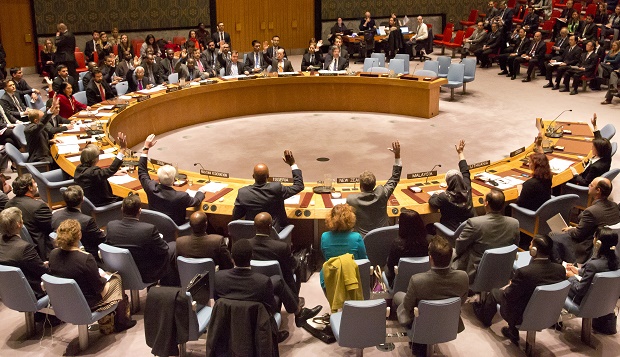Italy, Netherlands and Sweden vie for Security Council seat
UNITED NATIONS — Italy, the Netherlands and Sweden all made their cases on Tuesday for why they should be elected to a non-permanent seat on the United Nations’ most powerful body.
The open debates at the UNare the first in the U.N.’s 70-year history to subject candidates for Security Council seats to questions from member states and non-governmental organizations.
The three countries are vying for two open seats on the 15-member Security Council reserved for Western nations, with their ambassadors explaining why their country deserved to be elected to a two-year term beginning in 2017. All 193 member states will vote for five new council members on June 28.
The World Federation of United Nations Associations hosted the debates to promote greater transparency in the election of countries for non-permanent Security Council seats. Five new members are elected every year.
“I believe Sweden is different. We are militarily non-aligned. We have a small country perspective. We act in solidarity, being the largest contributor per capita contributor to development assistance, to climate finance and to the United Nations,” said Swedish Ambassador Olaf Skoog, adding that, among the candidates, his country has been off the Security Council the longest and has served the fewest terms.
Article continues after this advertisementThe Kingdom of the Netherlands, which also includes the small island nations of Aruba, Curacao and St. Maarten, highlighted its commitment to fighting climate change as much of the country sits below sea-level and the islands are increasingly vulnerable to rising tides caused by the melting polar ice caps.
Article continues after this advertisement“The challenges the world faces are enormous and I think the UNheadquarters could be the headquarters for all those who want a better world, maybe for all those who want to be realistic optimists,” Netherlands Ambassador Karel van Oosterom said.
Italy’s Ambassador Sebastiano Cardi touted his country’s geographic location as the only Mediterranean nation vying for a seat on the council.
“If we are elected we think we will bring in the council our direct experience of situations that are happening right in our area, in our region, our experience of negotiating, our experience of always resorting to negotiation and dialogue instead of more robust solutions,” Cardi said.
On Monday, Kazakhstan and Thailand made their cases to be elected for a seat reserved for the Asia-Pacific group.
Two council seats are uncontested which means Ethiopia is virtually certain to be elected for the open Africa seat and Bolivia for the Latin America and Caribbean seat.
RELATED STORIES
Only 1 woman on UN Security Council–from the United States
